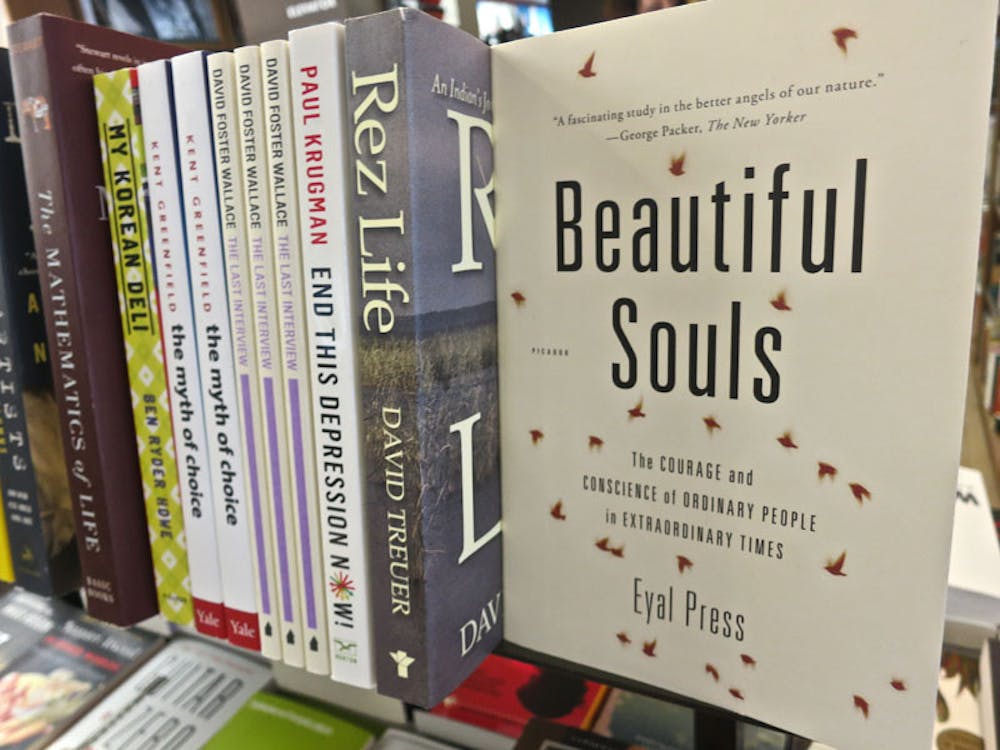Incoming first-years will explore the tension between legal or political obligations and moral duty studied in “Beautiful Souls” by Eyal Press ’92 for their summer reading, Associate Dean of the College for First-Year and Sophomore Studies Ann Gaylin announced at Early Admitted Students Day Feb. 19.
The book examines “moral decision making from a variety of viewpoints, both contemporary and historical” and is the first summer reading selection to have been written by an undergraduate alum since the summer reading program began in 2007, said Dean of the College Katherine Bergeron.
“Beautiful Souls” chronicles four accounts of people who defy laws and their loyalties on moral grounds, despite potential penalties — a Swiss police officer who illegally allowed Jewish refugees across the border in 1938, a Serbian who hid the identity of Croatians to save their lives, an Israeli soldier who refused to fight in captured territories and a financial whistleblower who exposed corruption in her firm.
The book selection was based on suggestions from faculty and staff members, Bergeron said. Summer reading choices must adhere to certain criteria: The book “should be extremely well-written,” have an appropriate length and be understood from “multiple points of view,” Bergeron said. Gaylin praised the book as “very engaging.”
In the past, summer reading selections have been related to University events. Last year, “Sons of Providence,” which examines Rhode Island’s role in the slave trade, was chosen following the appointment of Anthony Bogues as the inaugural director for the Center for the Study of Slavery and Justice, The Herald previously reported. The class of 2015 read “Factory Girls” for its summer reading because of the book’s connection to the Year of China.
But not all previous summer reading selections were as topical, Gaylin said.
“Beautiful Souls” did not have a particular connection to a University event, but it raised “pressing questions of moral significance in our world today and actually knowing how to make the right decision,” Bergeron said, adding that these are “important questions for student(s) to grapple with.”
This is the first time the University has chosen a book written by a Brown undergraduate alum, but Bergeron said that did not affect the decision-making process.
“Students will appreciate the opportunity to meet a Brown alumnus who has had a successful writing career,” Gaylin wrote in a email to The Herald. Since the University invites the author of the summer reading to speak every year, Gaylin wrote that Press “is looking forward to returning to campus again.”
Press, now a professional journalist, said his writing “broadly resonated with his experience at Brown” and that the selection of his work was personally meaningful to him.
Press noted “Beautiful Souls” has received attention from other universities, as its issues are relevant “moral developments in our society over the decade.”
Press said the book has two primary sources of inspiration. From a literary perspective, he said he wanted to explore people who “stand by their principles” in difficult situations, which is “fascinating to explore as a writer.” From a more personal perspective, he asked himself “what (he) would have done in their situation(s),” he said.
Press said he did not think the book would change how a person would act in such situations, but perhaps it would affect the way readers view people in similar situations. Through the stories in the book, the readers will recognize “how valuable, important and self-affirming these acts were,” he said.
Elizabeth Conway ’17, who was admitted early decision and is currently a senior at Manchester High School, N.H., said she is excited to read the book because the issues it explores seem “inspiring.”
This year marks seven years since Brown’s summer reading projects for new students began in 2007. The goal of summer reading is to allow students to meet with other students and faculty members in a “low pressure environment and to talk about issues of some significance,” Bergeron said.
This common reading experience “ends up binding people together,” Bergeron said. Students will remember this reading experience in the future, she added.
“The reading becomes more important later on than it does on that particular moment you sit with your classmates,” she said.

ADVERTISEMENT




